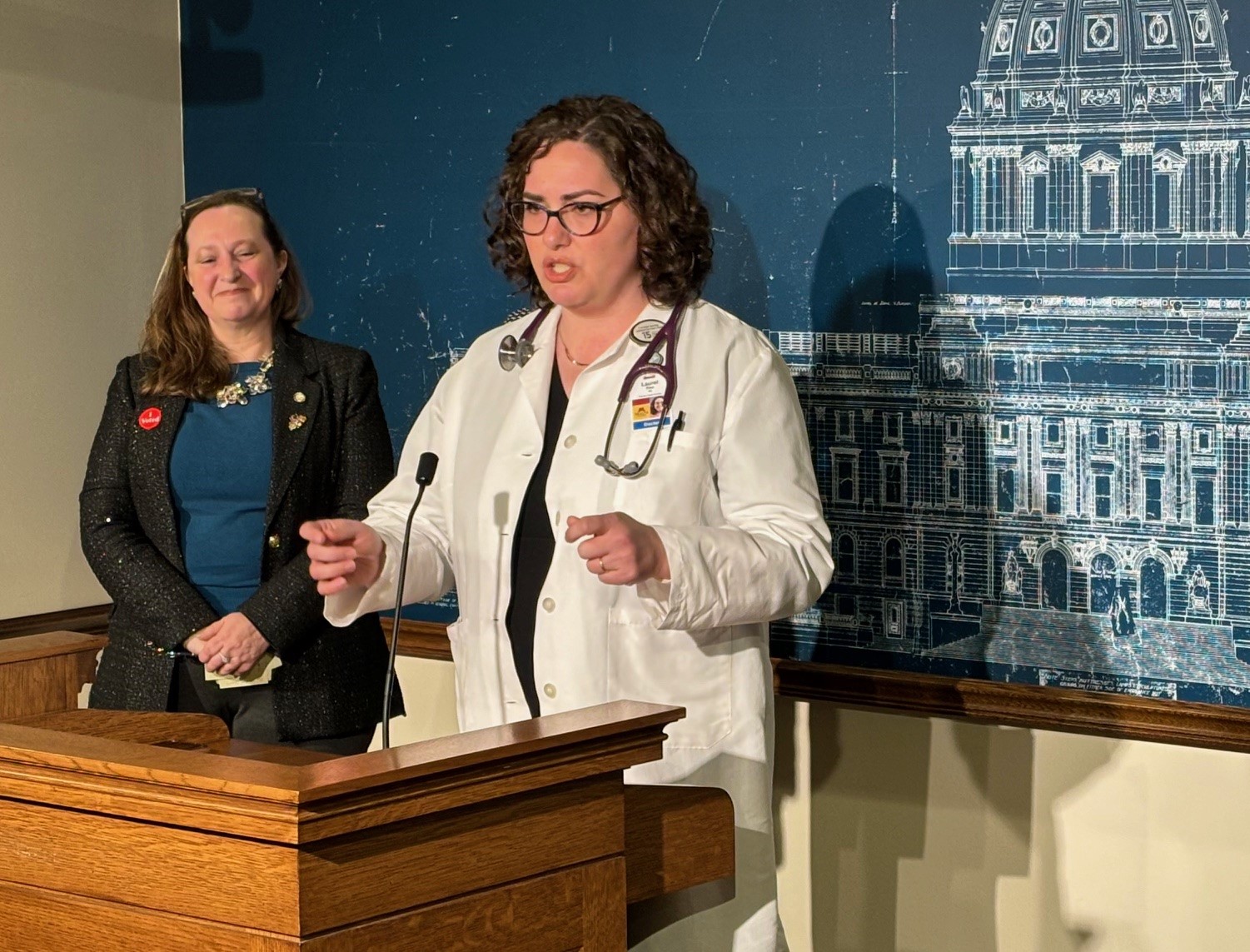Legislative Session Starts; MMA to Focus on 5 Major Issues
February 19, 2026
State lawmakers returned to St. Paul on February 17 for the second half of the 2025-2026 biennium.
March 7, 2024
The MMA’s top legislative priority of limiting the use of prior authorization continues to move at the Capitol, with its first senate committee hearing taking place on March 5. The bill passed through the Senate Commerce Committee and will be heard next in the Senate Health and Human Services Committee.
Earlier in the day, the MMA, along with the bill’s Senate and House authors and supporters of the legislation, SF 3532, held a press conference at the Capitol.
 |
| MMA President Laurel Ries, MD, discusses prior authorization legislation during a March 5 press conference. House author Kristin Bahner looks on. |
“Prior authorization is not a new issue,” said Sen. Kelly Morrison, MD, the Senate bill’s author. “It is an issue many of us have experienced personally or have constituents who have had negative experiences.”
Morrison went on to cite AMA data noting that physicians or their staff complete an average of 41 prior authorizations per week, spending more than 13 hours every week getting prior authorization approvals.
“Those numbers are stunning, but what is worse is the impact prior authorization is having on patient care,” Morrison said. “94% of physicians report prior authorization has led to delays in patient care. 80% report that prior authorization can and has led to treatment abandonment by patients. 33% of physicians report that prior authorization has led to a serious adverse event for their patients, including 19% reporting that it has led to a life-threatening event.”
“Prior authorization is delaying care for our patients,” said MMA President Laurel Ries, MD. “It is getting in the way of our patients receiving the care that has been recommended by their physicians.”
The press conference included remarks by Morrison; Ries; House author Kristin Bahner (DFL-Maple Grove); Maureen Alderman, Minnesota Rare Disease Advisory Council, parent of a child with a rare disease that requires regular prior authorizations for life-saving medications; and Nicole Hiljus, prior authorization manager for Children's Minnesota.
Watch the press conference here.
In the Senate committee hearing, Dziwe Ntaba, MD, MPH, an emergency medicine physician, gave an example of the dangers prior authorization can pose to time-sensitive treatment, specifically sharing a story about a patient experiencing homelessness who he treated for substance use disorder. If a prescribed medication requires prior authorization, he said, the treatment may never get to the patient due to the small window before the patient succumbs to reusing opioids.
“Starting and maintaining these patients on medications will improve their five-year survival rate by over 400%,” Ntaba said. “This bill fixes many problems by reducing barriers to access for lifesaving medications and treatment.”
February 19, 2026
State lawmakers returned to St. Paul on February 17 for the second half of the 2025-2026 biennium.
February 19, 2026
On the second day of the legislative session, MMA leadership was already advocating for one of its top priorities - minimizing the harm of federal changes to Medical Assistance (MA).
February 19, 2026
Legislation to prohibit the use of artificial intelligence (AI) in prior authorization requirements was heard in the House Commerce Finance and Policy Committee on February 19.